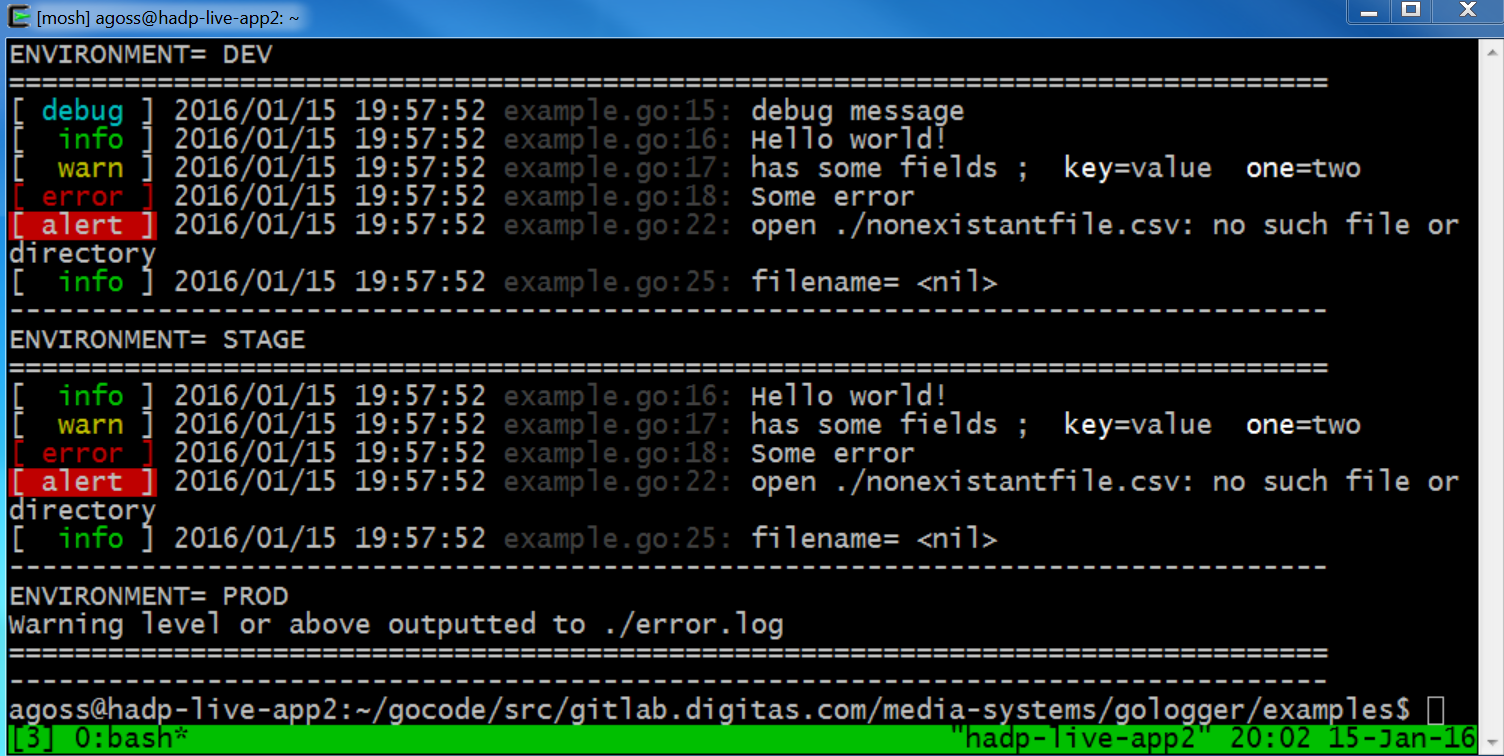Gologger
Projects >> Gologger
Gologger incorporates the elements of the best user-designed logging tools for Go. It primarily makes use of CoLog, a prefix-based execution logging tool.
The goal of this tool is to provide a simple, easy-to-use, customizable framework for implementing leveled, environment-based logging for new Go applications.

Usage
This tool is setup to customize logging outputs based on the environment command line flag. It uses CoLog to read and parse the standard log output, effectively acting as an extension of the default log library. It also uses Lumberjack as a rolling error log for prod environment outputs. This errorlog (name and path determined by command line flag) has been configured to rotate once it exceeds 500 MB or 14 days, for a maximum of 3 backups.
You’ll need to install the following Go packages to start using this:
go get github.com/andrewrgoss/gologger
go get comail.io/go/colog
go get gopkg.in/natefinch/lumberjack.v2
Command line flags
The following command line flags should be included in your main program:
-env string
Specify your environment as dev, stage, or prod. Dev writes to console at debug_level, stage writes to console at info_level, prod writes to rolling error file (warning_level or above). Required. (default “dev”)
-errorlog string
The output path and file name for error log (used for prod environment only). Required. (default “./error.log”)
About Me
I'm a data leader working to advance data-driven cultures by wrangling disparate data sources and empowering end users to uncover key insights that tell a bigger story. LEARN MORE >>
comments powered by Disqus